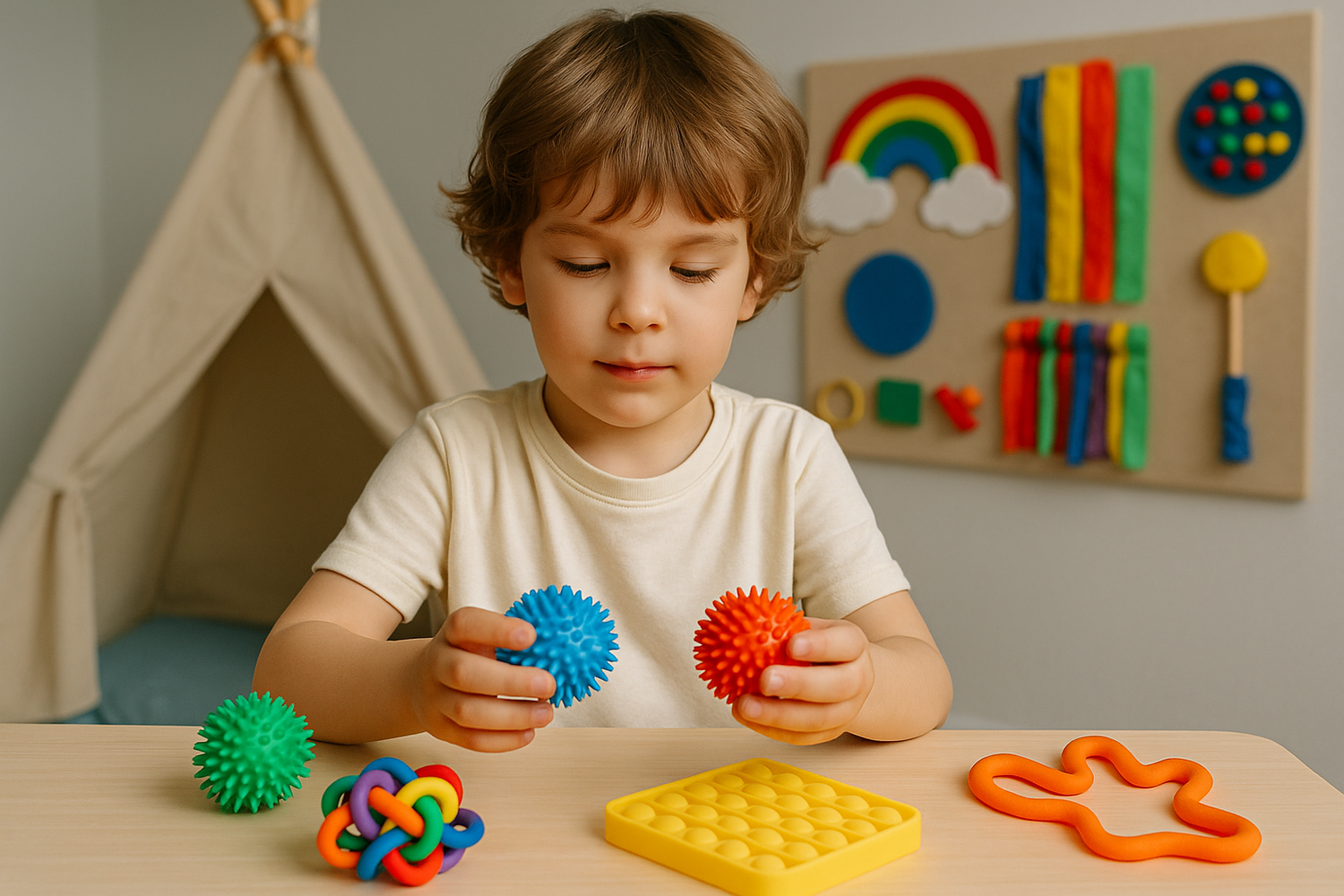
Discover Discrete Trial Training (DTT) in ABA therapy. Learn how this effective method helps children with autism in Raleigh, NC, acquire new skills, with insights for parents from Sunny Skies ABA.
Read More
Unlock the mystery of your child's behaviors with our guide to the four functions of behavior in ABA therapy. Learn how Sunny Skies ABA in Raleigh, NC, uses these insights for effective treatment.
Read More.jpg)
When a child receives a developmental diagnosis, one of the first questions parents often ask is: “What should we do next?”
Read More
Applied Behavior Analysis (ABA) therapy is one of the most widely studied and effective interventions for children with autism spectrum disorder (ASD).
Read More.jpg)
Anxiety is common among children with autism and can impact learning, behavior, and quality of life
Read More.jpg)
Taking children with autism into community settings like parks, stores, or restaurants can feel overwhelming for many families...
Read More.jpg)
Getting a child with autism to fall asleep and stay asleep can be a major challenge for families...
Read More.jpg)
Play is more than just fun—it’s a critical part of child development that supports creativity, problem-solving, language, and social skills...
Read More.jpg)
Mealtimes can be one of the most stressful parts of the day for families of children with autism...
Read More.jpg)
For many children with autism, transitions—moving from one activity to another—can be challenging...
Read More.jpg)
Social interactions—things like greeting others, starting conversations, or playing cooperatively—can be challenging for many children with autism...
Read More.jpg)
Emotional regulation—the ability to recognize, manage, and express feelings appropriately—is a critical life skill..
Read More.jpg)
Chores play a vital role in a child’s development—fostering responsibility, independence, and confidence...
Read More
Many children with autism find comfort in predictability and structure...
Read More
When a child is diagnosed with autism, the entire family is affected—especially siblings...
Read More.jpg)
At Sunny Skies ABA, one of our biggest goals is to help children with autism gain the skills they need to become as independent as possible.
Read More.jpg)
.jpg)
Understanding the reason behind your child’s behavior is the first step in creating meaningful change.
Read More.jpg)
When a child exhibits a behavior — whether it's a tantrum, a scream, or a joyful laugh — it might seem random or confusing to a parent...
Read More.jpg)
Have you ever wondered why your child repeats certain behaviors — even the challenging ones?
Read More.jpg)
Raising a child with autism or other developmental differences often means navigating the day with a high level of unpredictability...
Read More.jpg)
For many children with autism or developmental delays, communication isn’t as simple as speaking a few words...
Read More.jpg)
If you’ve ever guided your child’s hand to help them write their name or reminded them repeatedly to brush their teeth, you’ve used a prompt...
Read More.jpg)
When a skill seems far beyond your child’s current ability — like using the toilet, tying shoes, or saying their name — it can feel overwhelming...
Read More.jpg)
Motivating a child to complete tasks like brushing teeth, cleaning up, or finishing homework can feel like an uphill battle
Read More.jpg)
One of the most effective tools in ABA for reducing challenging behaviors — without using punishment...
Read More.jpg)
Imagine your child is throwing tantrums every time you say “no” to a snack. It's exhausting...
Read More.jpg)
Your child just mastered brushing their teeth in therapy — but refuses to do it at home..
Read More.jpg)
Imagine starting each day not knowing what’s coming next — no idea when meals will happen, who you’ll see..
Read More.jpg)
To an outsider, an ABA session that looks like toys and giggles might not seem like serious therapy...
Read More.jpg)
Waiting is one of the hardest skills for any child to master — especially for those with autism or developmental delays...
Read More
Have you ever pointed at a plane in the sky and waited for your child to look?
Read More
That’s the first thing an ABA therapist does when they begin working with a new child?
Read More
Daily living skills — like brushing teeth, getting dressed, or using the bathroom — are essential for independence...
Read More
NET is a method of ABA that teaches skills where they naturally occur...
Read More
For children with autism, transitions can be among the most stressful parts of the day...
Read More
When your child begins ABA therapy, one of the most important people in their daily progress is the RBT...
Read More.jpg)
If your child is receiving ABA therapy, there’s someone guiding the plan behind the scenes...
Read More
If your child receives ABA therapy or school-based behavioral support, you may have heard the term Behavior Intervention Plan (BIP). But what exactly is it, and how does it guide the changes you hope to see?
Read More
Play is often called the “work of childhood,” and for good reason. Through play...
Read More
Imagine trying to navigate your day without a calendar, clock, or to-do list. For many children with autism, the world feels chaotic without structure...
Read More.jpg)
Social skills are more than just saying “hello” or taking turns. They’re the foundation for making friends...
Read More
If you’ve observed ABA therapy, you may have seen a therapist sitting at a table with a child, delivering quick instructions..
Read More
Some of the most meaningful gains in ABA therapy come not from correcting every behavior but from focusing on a few key learning areas — or pivots — that can unlock widespread progress across multiple skills...
Read More
Emotional outbursts. Meltdowns. Impulsivity. These aren’t just “bad behaviors” — they’re often signs that a child is struggling to self-regulate...
Read More.jpg)
Your child just mastered a new skill during an ABA session — maybe they learned to say “I need help” or wait patiently for a turn..
Read More
Imagine a child who hits when they want attention, cries when they’re hungry, or runs away when they’re...
Read More
As your child grows and gains independence, there may come a time when they begin to “graduate”...
Read More
magine trying to get a snack, ask for help, or say no — but not having the words to do it. For many children...
Read More
Following directions like “Put your shoes away, then wash your hands” might seem simple to most...
Read More
Imagine being asked a question over and over — and getting it wrong every time. Eventually, frustration sets in...
Read More
Getting dressed, brushing teeth, or packing a lunch — these are everyday routines many of us take for granted...
Read More
When it comes to helping children with autism, timing makes a difference. Early intervention isn’t just a buzzword...
Read More
For many children with autism, making friends, reading social cues, or joining in group play doesn’t come easily...
Read More
Starting ABA therapy can feel like a big step — and it’s normal to have questions. What will the session...
Read More
ABA therapy doesn’t stop when the session ends — and neither does your child’s progress. One of the most powerful...
Read More
Meltdowns. Refusing to follow directions. These moments are hard for any parent — but especially when
Read More
Starting preschool, kindergarten, or any new school can be overwhelming — especially for children with autism. New routines, new people...
Read More